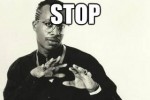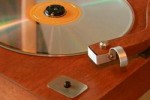I have thought a lot about this subject and I am posting here to offer my views as someone who just likes music, and is not that fussed about the format. I grew up in the 80’s and in my earliest years vinyl was everywhere and cassettes were commonplace too. The appeal of the CD was that it was not as highly perishable as the other two and the sound quality was always perfect and never changed from the day you bought it. In this day and age it is quite easy to covet vinyl but a lot of people were sick of changing sides, looking for their favourite track on the LP, and dealing with scratches and skips. After all, people paid good money to listen to the actual music and they expected something durable.
CD did live up to its promise as I still have some CD’s mastered in the early 80s and they still sound perfect. Kept in great condition, a CD will play the same as it did all those years ago and a well engineered disc can still wipe the floor with vinyl. The reason people started to collect vinyl is because music fans did not always like the difference in the sound between LP and CD. A lot of classic albums were remastered for CD. They did not necessarily sound bad but they did not sound the same as the way people remembered them. There is certain music people associate with the way they heard it originally. I heard a lot of records by bands like the Ramones back then but when I hear the CD’s, the masters are different, and they don’t sound the the way I remember.
Sometimes the difference can be significant. For people who never heard the music then, it shouldn’t matter since they have no memory or any specific association with that sound. That is one reason why people collected older albums – they preferred the way the vinyl version sounded. Another reason was because the older albums came out when LP was the dominant format. If you heard The Beatles in the US in the mid-60s, you heard their specially made US albums with all their sonic imperfections. Some people like to hear the albums the way the audiences heard them back then, to purchase physical objects associated with that period. Some albums were never released on Cd and are very rare. The myth that people bought LP’s for better sound or because they exude emotion is nonsense spouted by an industry that has been threatened with extinction.
I still buy some vinyl but usually only if it is an album I heard back in my youth and does not sound as good to my ears on CD/digital. I also buy out of print albums – a lot of music was not issued on Cd or any other format. This is true for international music. I think today vinyl is succeeding for two reasons: there is no use pretending that digital is not the most used format, even by vinyl enthusiasts. Today people have numerous gadgets which they carry everywhere and this is probably the way most people experience recorded music. As such, people who intend to buy a physical copy will not buy a CD as it will not sound so different from the digital copy they have downloaded already. Vinyl is different enough, and when people choose to buy music on physical media, it easily justifies the expense. A lot of the times the vinyl copy will have a download code for a digital copy so buying a CD is pointless because with vinyl you can get digital and analogue. Most people won’t listen to the actual CD or vinyl that much anyway. That being the case, CD has less appeal since you will only listen to the digital files you extract from it, and if you already have a digital version there is no point in investing in a CD.
Also I suspect the music industry wants the CD to die. In the end it is easy to rip a CD and make copies in various bit rates, and retain a high quality music source that can be used by the buyer. If they phase out the CD your only other option for buying physical media will be vinyl and it would be much harder for people to copy and distribute LP’s. A lot of albums won’t come out on vinyl either since length is almost always an issue. Either way, someone will have to physically record all the music, add track marks, add titles, and scan the artwork. If the only choice for physical media is vinyl, your only digital choice will be paying the rip-off prices for downloads (most of which are no better than CD anyway) , and I am sure the industry will start to tighten up on piracy and increase prices.
There is a reason why pirate music is so common on the Internet – music companies are letting it happen so people ditch the old technologies and get accustomed to the new ways of consuming music. People won’t do that if they have to pay for the digital alternatives to physical media, so entertainment companies are prepared to take a hit to get people used to downloading and enjoying digital content. Once people are all-digital, sites offering free downloads will die, and so they should. I am no advocate of piracy. Companies already have the power to have their media removed from free download sites but many don’t. Internet service providers often don’t do much about it either since the free digital content is one of the main draws of broadband packages. Once you have broadband you can stream or download free movies and music, watch TV shows, get free Internet phone and video calls.
Once people stop buying physical discs, the only choice will be digital but once that happens companies will tighten up the law because all alternatives will be dead. You will either pay up or you will be locked out. At that time we will have people buying the old CD’s for dirt cheap prices and there will be a brief golden era of people collecting CD’s in flea markets, where people would be eager to sell them off as obsolete crap. Then the CD’s will go up in price and become collectible and replace vinyl as the collectible item. Articles will be written as to how CD’s sounded perfect and how they could be ripped and burned etc. Lo and behold, you will soon have reissues of CD’s back from record companies. Things always go in a circle with music formats.
The true stinker is going to be digital, yet that is what most people will continue to use. The most loathed format is the one people use most, funnily. The thing no one uses anymore is always the most attractive. Going back to piracy, it is all being allowed to happen because people are always trying to save money and few would be using the Internet if the you had to pay for all its charms. Piracy is blatantly illegal and digital piracy is easy to identify, and you would think something so obviously illegal will be shut down – yet it isn’t. Who gains? The people who supply broadband services are the obvious party, but companies that want people to consume their media digitally will benefit more in the long run. If people won’t pay for digital content, these companies will take a hit and let users take it for free because once they ditch their old CD burners, cassette recorders and anything that can be used as a digital source for future reproduction, these companies will claim their copyrights and incinerate the pirate ship.
Once the alternatives die, companies will actively work to remove pirated copies and then you will either pay for digital content (prices will go up), or you will buy a physical copy on a format that cannot be easily transferred to digital – crazy romantic vinyl. Then people won’t be talking about investing in a 3 grand turntable using David Bowie’s 1974 toe nail in the best cartridge forged by a long defunct Japanese company to play their precious vinyl which they will spend a lot of their time cleaning and lugging around. It is actually a stroke of genius because CD was launched to resell the same old music that people already had on vinyl. It served the music industry’s agenda to say it was better and to push it. Before mp3’s and cd-r’s, CD’s could not be copied without degradation – CD to cassette transfers were usually poor. It was a media that cost more and it was efficient and harder to copy. There were no recordable CD units available for years, so it ruled the roost for a long time. With laptops and CD burners, things changed, so the CD became the enemy of the industry and now the same companies that hailed CD as a major breakthrough are saying vinyl is the best format and releasing albums on it again. People who used to collect vinyl and made it fashionable did so because of the way the older copies sounded. They just wanted the music to sound the way it did when they first heard it, or collected it to own something that was associated with the history of a music act. The original album was what people heard so it was special. They never bought them for nostalgia necessarily.
New vinyl copies are a weird idea since a newly mastered digital recording of contemporary music should be good on every format. The reason vinyl was popular is because a lot of CD’s sounded different. Today everything should sound good, and if anything most modern recordings are probably heard digitally than on vinyl so people should have stronger memories of modern music on a digital format. Why would vinyl be better? It is not like people’s memories of contemporary music are based around the ‘warm sound’ of vinyl. Most people who buy vinyl albums today probably heard the music digitally originally (especially new music). Even after buying the vinyl, they will probably continue to experience that music digitally most of the time. Bands that became famous in the 90s were heard on CD by most people, and they made their music with that medium in mind.
Why would people prefer a vinyl version of an album that was originally intended for CD, when people loathe Cd reissues of albums that came out in vinyl originally? Why would people prefer bands like Nirvana and Pearl Jam on vinyl when practically all of their fans were listening to their CD’s back in the day? Those mixes and masters and CD technology should have been the way people connected with the music. Those people now collect vinyl under the misguided belief it is inherently better. The reason people used to say vinyl was better was because of the way people remembered their favourite music, and they preferred to hear it the way they used to.
I personally find it jarring to hear any contemporary recording from the digital age with crackles. The incongruous sound of a crackle on a current recording sounds strange to me. It is also funny when a commemorative vinyl version of an early 90s album comes out even though the original album was never popularized in that format and hardly anybody heard it that way. These new versions are marketed as being audiophile versions, even if the true fan would probably hold on to something they enjoyed when the band made the album. Why would an original Beatles LP from 1966 be worth a lot of money and not an original first edition of a Michael Jackson Cd from the early 90s?
I enjoy vinyl, and have a massive collection but I do resent the current hipster market that has emerged. CD’s may continue on if record companies make special editions etc on CD, but for all intents and purposes these special editions can be digital-only too, so they don’t have to stick with CD. For instance some classical music collections may span several LP’s so it may be cost effective for them to be released on CD if there is still a market for physical media, but there is no reason why they can’t be download-only. Vinyl has always been the worst format for classical music, with recordings mutilated and quiet passages defiled with hideous wow, flutter, cracks and pops. For classical music, CD was great, but digital is better because well mastered recordings can be offered in a complete form. Big classical sets are sometimes impractical on vinyl, so if they continue to appear on physical media, I hope it is on CD with digital download option because I don’t want a step back in time where symphonies were edited or split up. Some great recordings were made when vinyl was the main format, but even cassettes did a better job of conveying the music than vinyl because there is nothing quite as bad as having to constantly turn sides for music that was intended to be heard uninterrupted. Sorry for the long post but some of these points may be worth discussing.






I buy new albums for a few reasons. One of the reasons why I like vinyl is because you say, CDs sound the same whether it be the first time they are played or 102nd time they are playes and my CD sounds the same as my neighbor’s CDs. But, my vinyl album changes with how it is cared for and played. Kind of like wine. Each day that passes its not the same. And my vinyl copy will sound different then my neighbor’s. Also, I have my turntable dispayed prominently in my house. CDs are not as easy to play. I can plop it into the computer but I don’t have my expensive stereo connected to my PC so I would have to listen to it over my cheap computer speakers. Which are ample for listening to Youtube vids. But, are no match for my stereo system connected to my turntable.
im all for cd as well but if i compare for example a track by elo called “one summer dream”which featured on their album “face the music” and was later included on the b side to the well known hit “Mr Blue Sky”.The reason some audio content sounds dissimmilar between the two formats is mainly attributed to the differances between analogue and digital recording systems and between the two,dynamics play a big part in how the final mix sounds to the listener.i wont go into the technical side of it here only to say there are plenty of videos on youtube labled “the loudness war”that will explain things in more detail.but as far as vinyl goes,dynamics are in greater presence than on a cd.